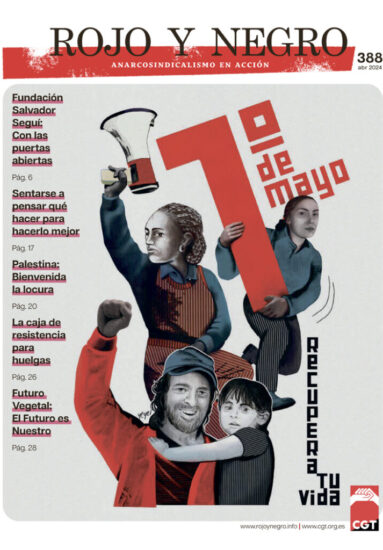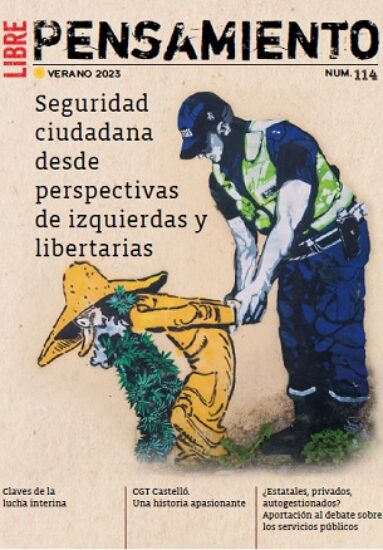El domingo pasado desperté ante un día prometedor en este bendito Noroeste del Pacifico (EEUU) y a la misma hora, mas o menos, en que los JJOO se clausuraban en Pekín. A dieciséis horas de retraso, u ocho de adelanto, si echamos a un lado el meridiano de Greenwich, mi curiosidad estaba enfocada en una sola cosa : el resultado del partido de baloncesto entre EEUU y España que ocurriera tres horas antes. Y acostumbrado como estoy a obtener mis noticias “en vivo”, y preferiblemente sin filtrar, acudí a las paginas digitales de Marca, el diario de deportes mas leído en España.
“Medalla de plata, orgullo de oro” leía el titular… y eso me decía que debió haber sido un partido reñido en el que el “Equipo Redentor” había logrado su oro después de aquella medalla de bronce “embarazosa” en el 2004 en Atenas. Aparentemente, los jugadores españoles habían dado una inesperada dura batalla que terminó felizmente para ambos contrincantes… los yanquis ganando su oro, y los españoles con su honor dorado, y medalla de plata, después de un gran partido. Claro que en los comentarios tanto de periodistas como de lectores españoles encontrabas la consabida estela de patrioterismo barato en la crítica de cómo el arbitraje favoreció a los norteamericanos ; aunque debo de reconocer que, después de ver el partido en repetición esa tarde, muchas de las decisiones arbitrales lucían desde controversiales a reprochables.
Sea como sea, el patrioterismo sigue vivito y coleando, no solo aquí en EEUU sino por todas partes. Por dos semanas, una buena parte de lo que leí en la prensa referente a los JJOO, tanto domestica como extranjera, tendía a exaltar a los locales al mismo tiempo que negaba merito a los demás que competían. Caso tras caso de este patrioterismo enfermizo se me ponía enfrente según circunnavegaba el globo de periódicos, desde China a Australia a Argentina a Brasil a EEUU y una buena parte de Europa, así como Rusia. Orgullo patriotero casi siempre estuvo en vigor, a veces desbordándose en inmadurez y falta de juicio.
Hace cuatro años, y como post-mortem de los JJOO en Atenas, mi columna denunció el falso orgullo exhibido durante la competición, tal basado mas en ignorancia patriotera que en merito obtenido por los contingentes de atletas de las naciones mas importantes que competían por “prestigio político”. Obviamente, si el medallero hubiese sido medido contra un Standard de producto bruto y población de esas naciones, las mas poderosa, como EEUU, no hubieran quedado muy bien, y los éxitos mas grandes serian de naciones sin grandes pretensiones, como las caribeñas (Bahamas, Barbados, Cuba, Jamaica y Trinidad & Tobago).
Esta olimpiada no fue muy diferente de las anteriores, y este enfoque al medallero por naciones, no hizo otra cosa que pasar el testigo de Norteamérica a China, aunque EEUU recurriera a “su forma” de medir el éxito dando igual peso a las medallas de oro, plata o bronce, en vez de otorgar la apropiada relevancia al oro que se da en otras partes del mundo.
En cuanto a los 40.000 millones de dólares que China gasto preparando los JJOO, una buena parte de ello en instalaciones deportivas a nivel optimo, tal suma puede que aparente pretensiones políticas y dominantes para una nación aun emergiendo de un mundo en desarrollo y con una población cuádruple a la norteamericana. Pero ese era precisamente el mensaje que China quería mandar a todos aquellos mas allá de sus fronteras de forma cortes pero profunda. Esta oportunidad en deportes fue perfecta para decirle al Occidente que su preponderancia en gran parte del globo, incluyendo África y Asia, algo que ha estado ocurriendo por medio milenio, está llegando a su fin. La hora de China ha llegado ; ya está aquí. Y también la de Rusia ; y en esta próxima generación la de India, y media docena de países mas que están entre bastidores.
En contraste a los problemas económicos que las olimpiadas traen a ciudades como Atenas, Sydney y otras mas en el pasado, este dinero estuvo bien destinado… y ciertamente asequible, y accesible, para una China resurgente.
Esta mañana leí un breve comentario que Fidel Castro escribió para Cuba Socialista sobre el tema de estos juegos olímpicos en Pekín, donde básicamente pide que todos pongamos a estos JJOO en un contexto apropiado cuando probablemente el 80 por ciento de los pueblos del mundo ni tienen instalaciones deportivas adecuadas para practicar, ni una verdadera oportunidad de competir. Y cuando pones tu ábaco para sumar a todos esos que viven en ese “mundo económicamente sumergido”, del que tristemente no les vemos emerger, ese porcentaje parece dar en diana.
¿Queremos con ello decir que los JJOO no son sino un desfile estrambótico para una quinta parte de la población mundial ? ¡Ni tan siquiera ! Quizás varios miles de atletas de categoría superior, y sus patrocinadores corporativos, se beneficien con esta gran exposición de destreza, pero pocos más. En las naciones ricas, deportes son en gran parte tan solo espectáculos donde sus pobladores no practican el deporte, tan solo lo ven, por lo general por televisión… y generalmente añadiendo a su obesidad.
¡Enhorabuena China ! Ganas por puntos aunque solo sea en deportes. Pero nos preguntamos… ¿intentaran lo mismo con las artes, la educación y la condición humana ? Mejor para ellos si lo intentan y lo logran ; y de ser así, quizás lo relevante en cuanto a derechos humanos – su aceptación a la crítica y cambio – les pondrá merecidamente como país-modelo de forma aceptable al resto del mundo.
© 2008 Ben Tanosborn
www.tanosborn.com/articulos/
Silver Medal, Gold Pride… and the 2008 Beijing Olympics
I woke up Sunday morning to a promising Pacific Northwest day as the closing of the Olympic Games was just taking place in Beijing. Sixteen hours behind, or – setting Greenwich aside – perhaps eight hours ahead, my curiosity was focused on one thing : the results from the US-Spain basketball game which had taken place a couple or three hours before. And accustomed as I am to get news live, and most preferably unfiltered, I marched right to the digital pages of Marca, Spain’s most read sports daily.
“Medalla de plata, orgullo de oro” (medal of silver, pride of gold) was the catchy headline… which told this reader that it must have been a close game, one in which America’s so-called “Redeem Team” had gone from a prior “embarrassing” bronze medal in the 2004 Athens’ Games, to a “deserving” gold in Beijing. Apparently, the Spanish players had given their American counterparts an unexpectedly tough game which resulted in a happy aftermath for both sides… the Yanks taking Gold and the Spaniards content by keeping their Pride golden – with Silver – after a great game. There was, of course, that expected jingoistic cry by some (or many) Spaniards that much of the refereeing favored the Americans, which I must confess, after viewing the game hours later, showed some officiating calls ranging from controversial to rebukable.
But be that as it may, jingoism is alive and well, not just in the United States of America but everywhere else. For two weeks, much of what I’ve read in the press concerning the Olympic Games, both foreign and domestic, tends to exalt the locals while denying or diminishing any merit obtained by the competing “others”. Instance after instance of this jingo-malady appeared before me as I circumnavigated the globe of periodicals, from China to Australia to Argentina to Brazil to the United States and much of Europe, as well as Russia. Jingoistic national pride did prevail for the most part, often bordering on great immaturity and lack of judgment.
Four years ago, as a sociopolitical post-mortem of the Athens’ Games, my column did denounce the pseudo-pride exhibited during the competition, based more on ignorant jingoism than in any accrued merit by the athletic contingents of the larger nations vying for political prestige. Obviously, if the medal count had been measured against some standard of combined GDP and population, major nations, such as the United States, would not fare so well, and the greatest accomplishments would have been achieved by Caribbean nations (Bahamas, Barbados, Cuba, Jamaica and Trinidad & Tobago).
This Olympiad was not that much different, and the medal race approach was simply the passing of the supremacy baton from the United States to China, even if the United States resorted to “its own way” of counting success by giving equal weight to gold, silver and bronze medals, instead of granting the appropriate relevance to the gold as it is done in most of the world.
As for the forty billion dollars spent by China preparing for the Olympics, much of it in building superior installations, such sum may seem as politically pretentious and overbearing for a nation still emerging out of a developing world and a population four times that of the United States. But that’s precisely the message that China intended to send to everyone outside their borders in a courteous but profound way. They chose sports to tell the Western powers that Western preponderance over much of the world, including Asia and Africa, lasting almost five centuries, is fast coming to a close. Yes, China’s time has come ; it’s already here. And so it’s Russia’s ; and within a generation, India’s and a half dozen other nations waiting in the wings.
Unlike the economic albatrosses that prior Games have brought to cities such as Athens, Sydney and several others before, this money was well earmarked… and certainly affordable, and available, to a resurgent China.
This morning, I read a brief commentary penned by Fidel Castro in Cuba Socialista on the subject of the Beijing Olympics, where he basically asked everyone to put the Olympics in proper context when probably 80 percent of the people in the world lack the facilities to practice, and the opportunity to compete. And when you add up the populations of much of what should be called the “submerged world,” for they certainly don’t seem to be emerging, that percentage seems to be right on target.
Are we implying that the Olympic Games are nothing but a fancy parade for a fifth of the world’s population ? Hardly ! Perhaps several thousand world class athletes, and their corporate sponsors, benefit from this display of skills, but hardly anyone else does. In the wealthy nations of the world, sports are for the most part just entertainment where the populations are not performers, only spectators… and obese at that !
Congratulations, China… you are up one ! Of course, it’s just in sports. But will they try to do the same in the arts, education, and the human condition ? More power to them if they try and succeed ; and as they do, perhaps the relevancy of human rights as they strive to better the human condition will vest that nation as an acceptable role model.
© 2008 Ben Tanosborn
www.tanosborn.com
Fuente: Ben Tanosborn












